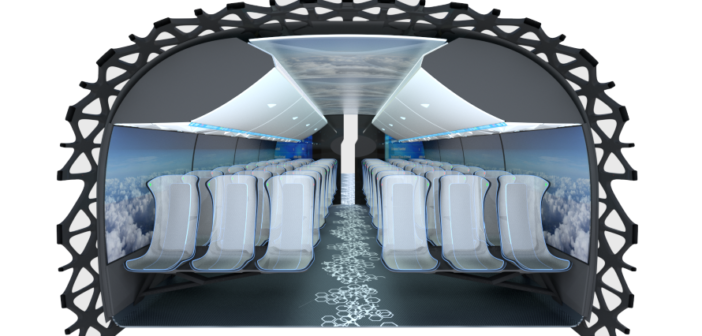FACC’s sustainable concept for next-gen aircraft cabins

The future of flying will be more sustainable, connected and barrier-free: At the international aviation trade fair AIX in Hamburg, FACC presented a radically new aircraft cabin concept which focuses on the needs of passengers – and is made of renewable materials.
There are many next-generation passenger aircraft in the development pipeline, such as the FlyZero models featured in the June issue of Aircraft Interiors International, all with a common goal of making air travel more sustainable. The interiors are also being conceived to be sustainable as well as comfortable, with the latest concept revealed this week by FACC, at Aircraft Interiors Expo in Hamburg.
Named the Bios Future Cabin, the design features innovative and sustainable materials, including a lightweight resin derived from sugar cane, which researchers have optimised for use in aviation over many years of research. The surface of the is claimed to be extremely robust, and also resistant to heat and chemicals.
The cabin layout is also innovative, with a key focus on making efficient use of the available space. The result, according to FACC’s CEO, Robert Machtlinger, is 20% more room to move and 50% more storage space, compared to current-generation aircraft. This was made possible by using a design approach that integrates with the load-bearing elements of the aircraft.
The design also addresses PRM accessibility, an important consideration that is becoming a growing expectation. Bio has a 100% wheelchair-accessible cabin and a PRM-friendly lavatory to help remove barriers to flying.
FACC has also considered seating, with large screens and intelligent surfaces integrated for a multimedia experience. The entire backrest of each seat in the concept is a large screen, which passengers can connect to via their devices to stream content or apps. A dedicated control centre enables each passenger to adjust the ventilation or individually configure design elements around their seat.
Naturally there is a post-Covid element, with a novel air curtain proposed to ensure that air is circulated within smaller cabin sections to help reduce the spread of viruses and bacteria.
